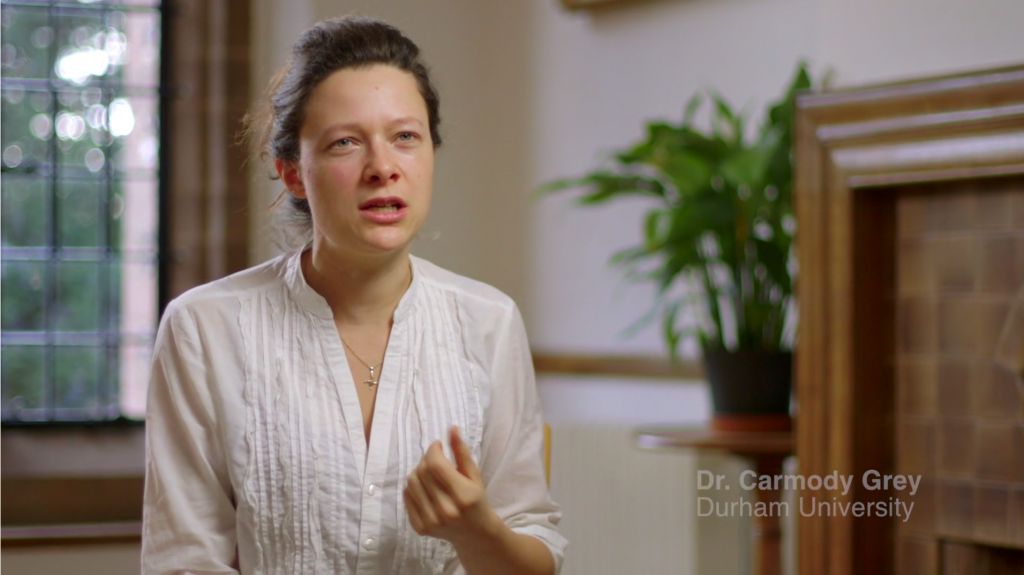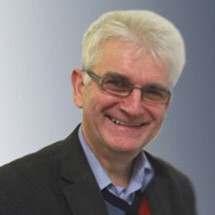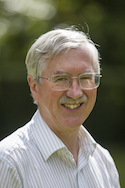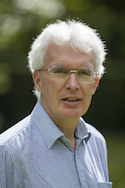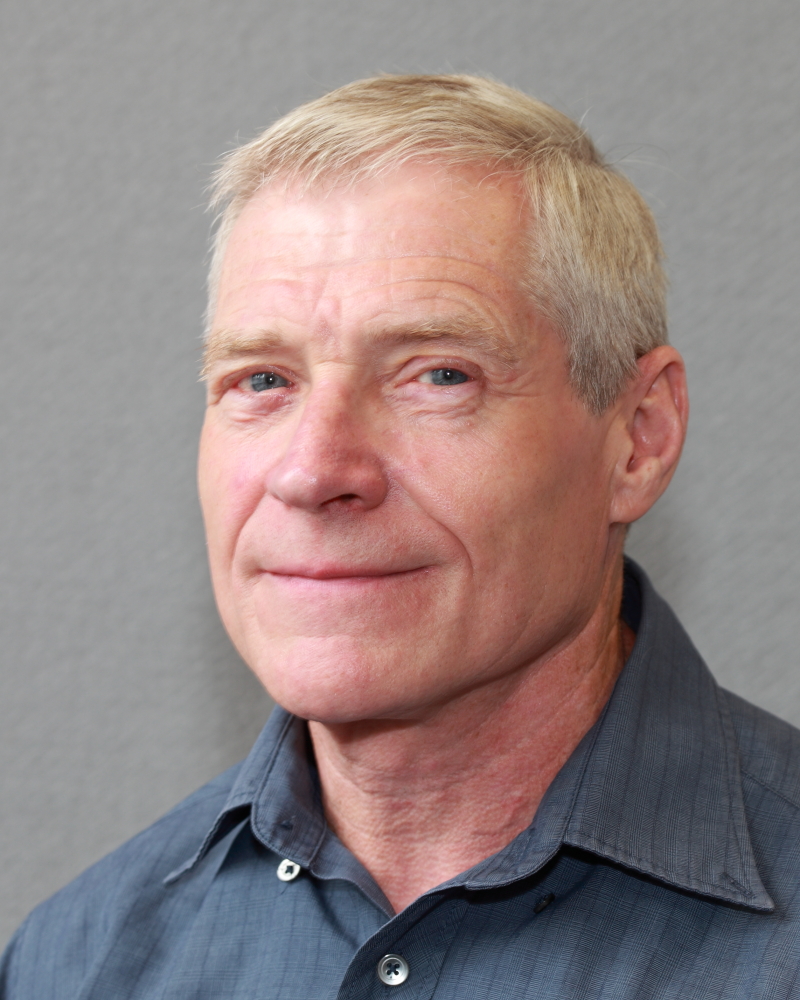Links to previous events and resources provided by others
Awe and Wonder at Jodrell Bank
A celebration of physics, music and faith, written and presented by CiS Trustee Steph Bevan, with a contribution by Rev Professor David Wilkinson
BBC Radio 4 Sunday Worship on 16 November 2025
Available here only until Tuesday 16 December! https://www.bbc.co.uk/programmes/m002m965
CiS Annual Members’ Meeting
Online
Thursday 13 November 2025, 19:00
Recording not yet available
Robotics in Education and Healthcare
Dr Esyin Chew
A Faraday Institute seminar, in Cambridge and online
Tuesday 18 November 2025 at 13:00
Recording not yet available
Digital Accessibility and Faith
Professor Jennifer George
A Faraday Institute seminar, in Cambridge and online
Tuesday 4 November 2025 at 13:00
Recording not yet available
God Makes the Difference
CiS Conference 2025: Friday evening (18:30) 24 and Saturday 25 October 2025
Altrincham Baptist Church, near Manchester WA14 2EW (and online)
Recordings will be available soon and a link will be provided here
Nature-Based Solutions for Climate Change: Good Stewardship in the 21st Century
Professor Mike Morecroft
A Faraday Institute seminar, in Cambridge and online
Tuesday 21 October 2025 at 13:00
Divine Windows – Seeing God through the lens of science
A John Ray Initiative webinar with Dave Gregory, online
Wednesday 1 October 2025, 19:30-21:00
A recording is available (possibly for a limited time) here:
https://jri.org.uk/events-2/webinars/
Science, Religion and Justice
Faraday Institute Summer Course, 30 June to 4 July 2025
Lucy Cavendish College Cambridge and online
As and when recordings become available, links will be provided here
Applying Christian values to a genetic age
Professor Chris Wild
Tuesday 3 June, 13:00-14:00
A Faraday Institute seminar, in Cambridge and online
https://www.faraday.cam.ac.uk/event/prof-chris-wild-applying-christian-values-to-a-genetic-age
Volcanoes: reflections of heaven or hell?
Professor Bob White (President of Christians in Science)
Tuesday 20 May, 13:00-14:00
A Faraday Institute seminar, in Cambridge and online
https://www.faraday.cam.ac.uk/event/prof-bob-white-volcanoes-reflections-of-heaven-or-hell
Evolution, Algorithms and Convergence
Professor Ard Louis
A Faraday Institute public lecture in conjunction with Christians in Science
Thursday 15 May, 18:00
https://www.faraday.cam.ac.uk/event/prof-ard-louis-evolution-algorithms-and-convergence
Are doctrines empirically verifiable? Theology, theory, and the human sciences
Professor Simeon Zahl
Tuesday 6 May, 13:00-14:00
A Faraday Institute seminar, in Cambridge and online
Week of prayer for science during British Science Week
8-16 March 2025. 10 recordings available:
https://www.youtube.com/playlist?list=PLmR0gS6ShpyPPS1hqanYq47irhSFTYJLg
Origins of Life Research: a New Nexus for Natural Theology?
Dr Fred Simmons
A Faraday Institute seminar, online
Tuesday 11 March at 13:00
Enhancing Diversity in Clinical Trials: a Touch of Humanity
Dr Bridget Bannerman
A Faraday Institute seminar, online
Tuesday 25 February at 13:00
CiS Vision into Action 2025
An online presentation and discussion
Monday 10 February 2025, 19:00 to 20:00
You can find a recording here:
https://www.youtube.com/watch?v=DGMU4qjsPSI
What’s a scientist doing believing in the incarnation?
A podcast with David Wilkinson, from Faraday Churches
http://www.patreon.com/posts/whats-scientist-117821300
CiS Vision Evening
A new online approach for the CiS Annual Members’ Meeting
Monday 25 November 2024, 19:00 to 20:00
A recording of this event is available here:
How to think about God the Creator today
Professor Janet Soskice
Tuesday 19 November 2024 at 13:00
A Faraday Institute seminar, in Cambridge and online
www.faraday.cam.ac.uk/event/prof-janet-soskice-how-to-think-about-god-the-creator-today/
The trees our teachers – Lessons from Biblical history and modern landscapes
Dr Will Simonson
Tuesday 5 November 2024 at 13:00
A Faraday Institute seminar, in Cambridge and online
Christians in Science Autumn Conference
Celebrating 80 years of Christians in Science
Birmingham, Friday 25 and Saturday 26 October 2024
Speakers included David Wilkinson, Nick Spencer, Hannah Waite, David Hutchings, Nathan Bossoh, and James Ungureanu. There were also two parallel streams of 12 short presentations submitted in response to an invitation.
Recordings are now available (20 in total)
www.youtube.com/playlist?list=PLmR0gS6ShpyPElHGSMFT4IuA-jcJZhg9G
Are there underlying principles of protein evolution? Reconsidering law and purpose in biology
Dr Zachary Ardern
Tuesday 22 October 2024 at 13:00
A Faraday Institute seminar, in Cambridge and online
Contemporary Christian Environmental Worldviews
Janel Curry
Hosted by the CiS Manchester group
www.youtube.com/watch?v=6DuBUj
The Art and Science of Human Health and Spirituality
The Faraday Institute Summer Course 2024
1 to 5 July 2024
As and when recordings become available, links will be provided here
Christians in Science ‘Connect Conference’
Being a believing scientist
Saturday 15 June
Speakers: 3 scientists in anatomy, genetics, and neuroscience, and the 2023 Oliver Barclay Lecture (Nathan James)
Recordings are available here:
http://www.youtube.com/playlist?list=PLmR0gS6ShpyNEZzj1V9Uc57ErF6MGNLVK
The Quest for Human-Level AI and its Implications for Theological Anthropology
Dr Marius Dorobantu
A Faraday Institute Seminar
Tuesday 21 May 2024
Why Biological Evolution Should Inspire Worship
Dr Graeme Finlay
A Faraday Institute Seminar
Tuesday 7 May 2024
https://www.faraday.cam.ac.uk/resources/multimedia/why-biological-evolution-should-inspire-worship/
The Origin of Life: Chance, Necessity or Design?
Dr Paul Rimmer
A Faraday Institute Seminar
Tuesday 23 April 2024
https://www.faraday.cam.ac.uk/resources/multimedia/the-origin-of-life-chance-necessity-or-design/
Science, Religion and the Material Turn: Exploring New Global Potentials through Colonial Museum African Collections
Dr Nathan Bossoh
A Faraday Institute Research Seminar
Tuesday 12 March 2024
AI and the Future of Religion
Professor Beth Singler
A special event celebrating the 80th anniversary of Christians in Science
Monday 11 March 2024
https://www.youtube.com/watch?v=WUJjbRV2z2k
Rescuing Religion from Obsolescence? John Templeton on Science and Religion
Dr Pete Jordan
A Faraday Institute Research Seminar
No recording available, but slides can be found here:
https://www.faraday.cam.ac.uk/wp-content/uploads/2024/03/Faraday-slides-v2-Jordan.pdf
Climate Change: Dealing with Disagreement
Dr Katharine Hayhoe
John Ray Institute 25th Anniversary Webinar
Monday 26 February 2024
https://jri.org.uk/events-2/webinars/
Kepler, Galileo and Aliens
Professor Martin Barlow
A Faraday Institute Research Seminar
Tuesday 13 February 2024
https://www.faraday.cam.ac.uk/resources/multimedia/kepler-galileo-and-aliens/
A Higher Calling? Science as a Christian Vocation
Dr Nathan James
2023 Oliver Barclay Lecture
Monday 29 January 2024
Big Questions in Science and the Church: Part 2
Christians in Science Autumn Conference
Saturday 7 October 2023 10:00-16:30
Emmanuel Church, South Croydon CR2 7AF
Recordings are now available and can be found here, along with other CiS conference recordings:
https://www.youtube.com/@ChristiansinScience/videos
Science, Faith and Hope for the Future
Faraday Institute Summer Course
2 to 7 July 2023
When recordings become available, a link will be provided here.
Big Questions in Science and the Church: Part 1
Christians in Science Spring Conference
Saturday 17 June 2023 10:00-17:00
Augustine United Church, 41 George IV Bridge, Edinburgh EH1 1EL
Recordings are now available and can be found here, along with other CiS conference recordings:
https://www.youtube.com/c/ChristiansinScience
Science, Faith and Ethics
Christians in Science CONNECT conference (for students, graduates and early careers – but the material is of interest to all!)
This was originally planned for a venue in Sheffield on Saturday 11 March 2023. Because of adverse weather conditions and the impact on travel, it was changed to be entirely online. Recordings are now available and can be found here:
http://www.cis.org.uk/connect-conference-2023/
Service of Memorial and Thanksgiving for the life of Tom McLeish
From York Minster, 27 April 2023
(I don’t know how long this recording will be available)
youtube.com/watch?v=R26XTLgaY5E
Seeding New Narratives: telling better stories about science and faith
A pilot research study by ECLAS (Engaging Christian Leaders in an Age of Science), currently presenting three stories through blogs and videos
- Church is a place where science happens – the use of science material in the Messy Church movement
- Draper and White: how Victorian fake news fooled the world – a late 19th century invented conflict narrative that is still widely believed today
- Christian climate science champions – the life and work of Sir John Houghton and Dr Katharine Hayhoe
All the material is on the ECLAS website here:
www.eclasproject.org/original-research/new-research-study/
Science, Spirituality and the Problem of Evil
Faraday Institute Seminar given by Rupert Shortt, February 2023
http://www.faraday.cam.ac.uk/resources/multimedia/science-spirituality-and-the-problem-of-evil/
Science and Religion: What exactly are we arguing about?
Public lecture by Nick Spencer, organised by CiS Southampton local group, November 2022
Recording available here:
www.youtube.com/watch?v=2BHr42A2la0
The Clockwork Orange – Humanity, Artificial Intelligence and God: Celebrating the 100th anniversary of Donald M MacKay
CiS Autumn Conference 2022, held in hybrid mode.
The recorded talks have now been made public and are available here:
https://www.youtube.com/@ChristiansinScience/videos
Science and Faith Perspectives on the Art of Being Human
Faraday Institute Summer Course 2022. When recordings are made available, a link will be provided here.
Science, Faith and Public Engagement
CiS Spring Conference 2022
Saturday 7 May 10am-5pm, at St John’s College Durham
See the March entry on the ‘Current science topics’ page for details
Recordings were made of the presentations at the conference, which was held in hybrid mode with several remote on-line partipants, and are now available on the Christians in Science website; see https://www.youtube.com/c/ChristiansinScience/videos
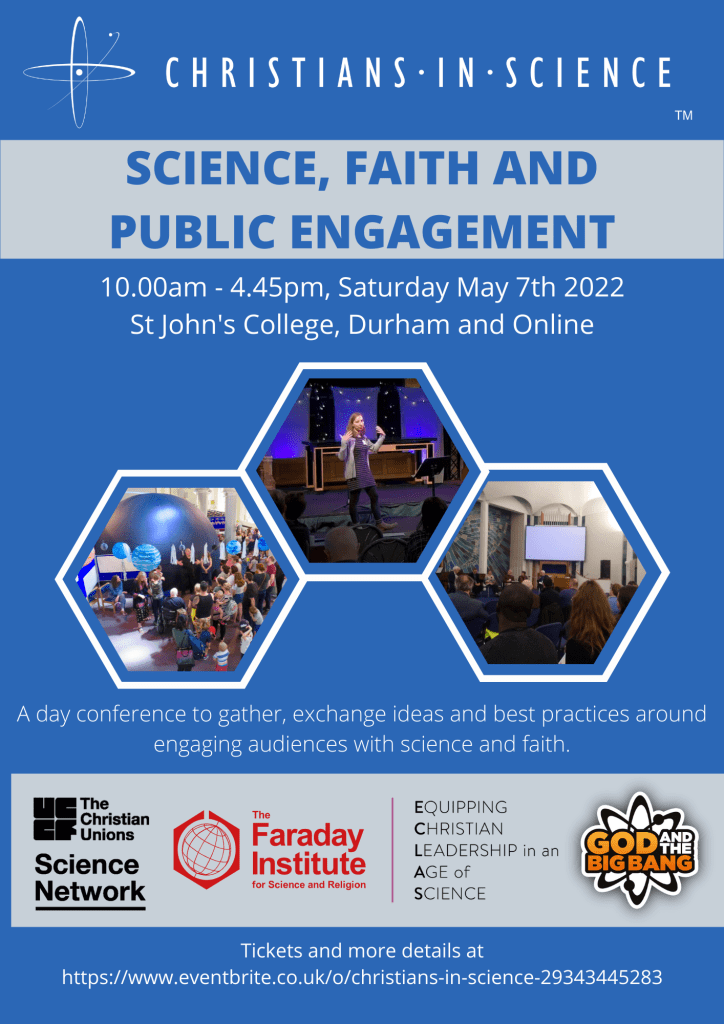
Faith in Science
A series of interviews with Christian scientists
Transworld Radio, April to June 2022
These were the dates of the original broadcasts. They were repeated, in the same order, and at the same times, starting in July.
The podcasts are also available at: www.twr.org.uk/ondemand (and then search for “Faith in Science”!) (you will need to register for the on-demand service, but it costs nothing and involves no obligations).
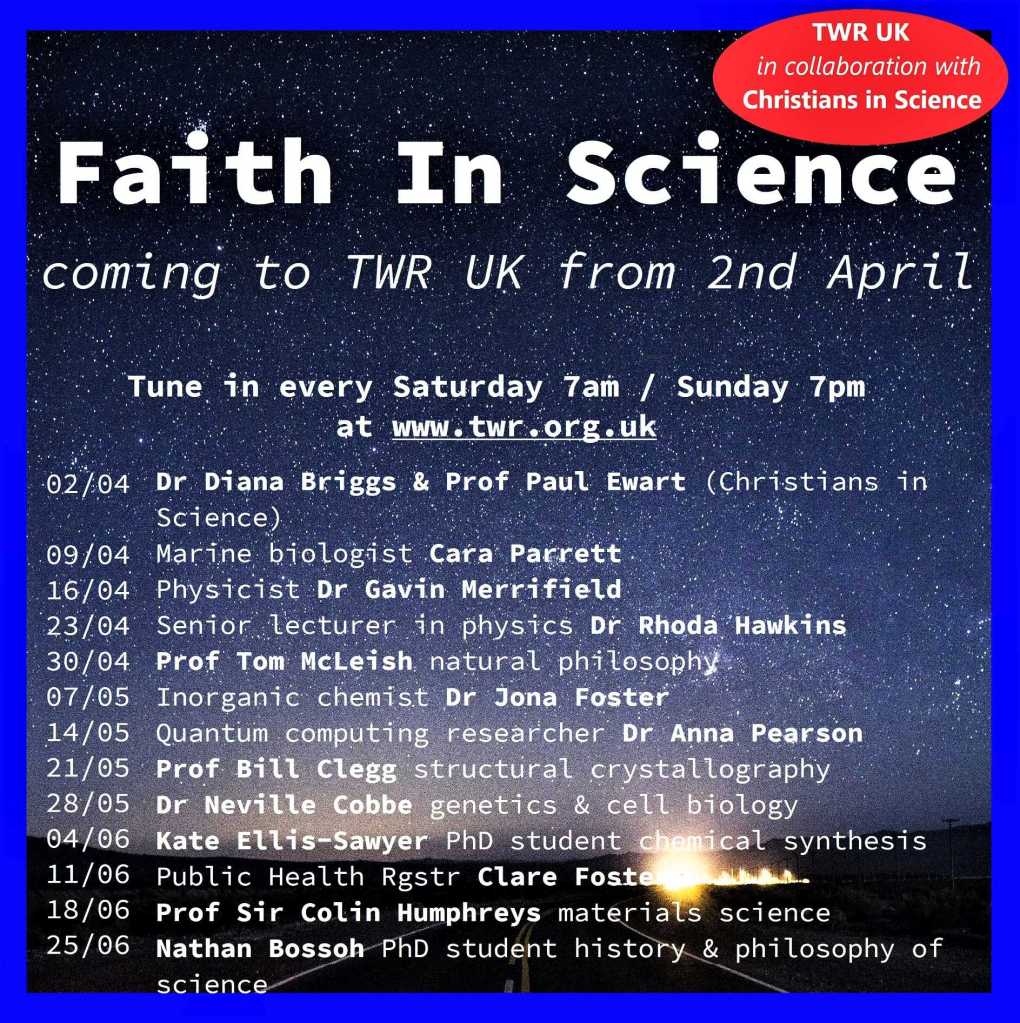
The Climate Crisis: A Christian Response
This was the Christians in Science one-day autumn conference in October 2021, just before COP26 in Glasgow. It was run in hybrid mode and the video recordings of all the talks, which are highly recommended, are now available here:
www.youtube.com/playlist?list=PLmR0gS6ShpyOY6_AERyClfNBg_6VKY_Jc
Interaction of Science and Faith in a Challenging World
This was the Faraday Institute’s online Summer Course in July 2021, with an excellent set of talks covering a wide range of topics including:
Science and Faith in History and Society
Science and Faith in Origins and Evolution
Science and Faith in Shaping the Universe
Science and Faith: All in the Mind?
Science and Faith in Caring for the Environment
Recordings of the talks are available on the Faraday Institute’s website:
www.faraday.cam.ac.uk/event/summer-course-2021-relaunched
Digital Theology and the Church
CiS Spring Conference 2021, held online May 7-8
A summary of this conference, with links to the recorded talks, can be found here:
It covered topics including Artificial Intelligence, Social Media, Virtual and Streamed Church Services, and the Impact of Covid on Church Activities.
Coping with Controversy
CiS online CONNECT Conference, February 2021 (for students, graduates and early careers)
Recorded talks are available here:
www.cis.org.uk/conferences/past-conferences/connect-2021/
Faith in Science
A short talk followed by a live Question and Answer session with a four-member panel on issues of science and Christian faith, hosted by Newcastle University Christian Union in its ‘Big Questions’ series.
Organised jointly by Newcastle University Christian Union, Christians in Science Tyneside & Northumberland local group, and Christian Medical Fellowship.
Wednesday 24 February 2021
Recorded and available on YouTube (https://youtu.be/7L4XQ_hunFU)
(the first few minutes are missing)

God and Pandemics
Online conference presentations from Christians in Science, August 2020
Telling a better story – why faith and science belong together
Online summer course presentations from the Faraday Institute, June/July 2020
Events organised by local CiS group members (most recent first)
Index of event titles
Stewards of Creation: Christian perspectives on environmental issues (CiS Northern Conference 2019)
The rise of the intelligent machines – friend or foe? Kim Stansfield
Are natural disasters Acts of God? Bob White
Science and morality – can I blame my genes? Keith Fox
What significance do we have in a vast universe? Chris Done
Can we believe in miracles in an age of science? Sir Colin Humphreys
Science and Christian faith – age-old enemies or natural allies? Bill Clegg
Climate change – is it real and does it matter? David Golding
Mine for ever? Our use of the earth’s resources. David Manning
Creation or evolution – do we have to choose? Denis Alexander
Saturday 18 May 2019 St John’s College, Durham
Christians in Science Northern Conference 2019
Stewards of Creation: Christian perspectives on environmental issues

Carmody Grey is Assistant Professor of Catholic Theology at Durham University. She works mainly in the areas of philosophical theology and theological ethics, with a focus on science, nature and environment. Carmody has degrees in theology from Trinity College Oxford, King’s College Cambridge and the University of Nottingham. She studied conservation biology at the University of Edinburgh, and has worked on both marine and terrestrial conservation projects. She teaches and speaks publicly in various arenas, is a columnist for The Tablet, and sits on the Advisory Board of Las Casas Institute (Blackfriars Hall, Oxford).
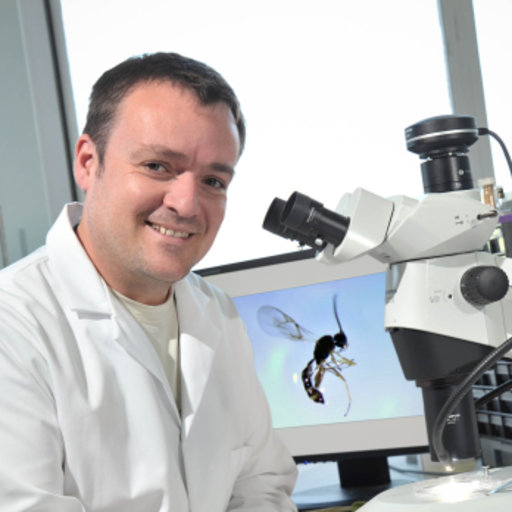
Darren Evans is a Reader in Ecology and Conservation at Newcastle University, where he leads the Network Ecology Group. He combines advances in ecological network analysis with DNA-metabarcoding to examine the impacts of environmental change on species-interactions and ecosystem functioning. He is currently studying the consequences of altered network structure on fungi, plant and animal populations, mainly within forest- and agro-ecosystems, and is funded by Royal Society, NERC, BBSRC and EU H2020.
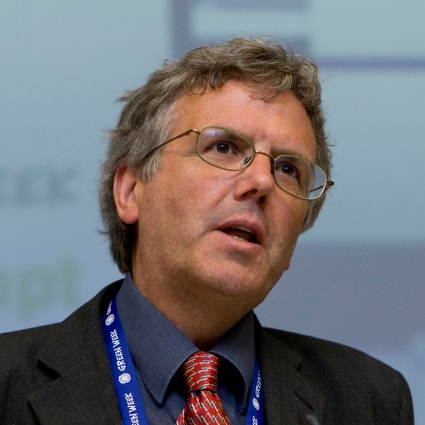
David Manning is Professor of Soil Science at Newcastle University, and part of Newcastle Quaker Meeting. He is a geologist, with a BSc from Durham University and a PhD from Manchester. He was President of the Geological Society of London from 2014 to 2016. He has worked at Newcastle and Manchester Universities, with fellowships in Manchester, Nancy and Calgary. His career has focused on the science behind geological raw materials, working with tin and tungsten, then petroleum, landfill and clays. His current research focuses on mineral reactions in soils that remove CO2 from the atmosphere, and that deliver nutrients to plants. He works on geothermal energy as a zero carbon source of heat, and is Senior Science User for the Natural Environment Research Council’s Geoenergy Observatories.
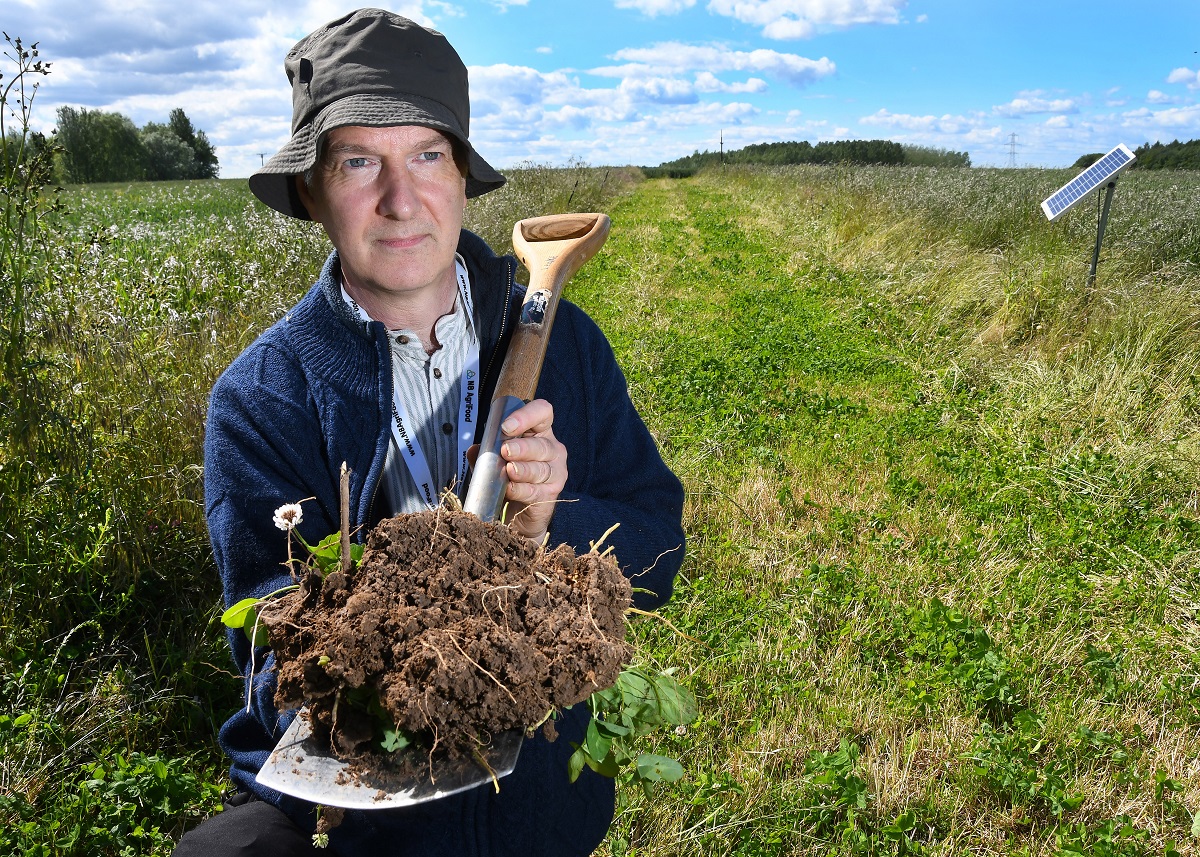
Jonathan Leake is Professor of Plant-Soil Interactions at the University of Sheffield, where his current research is focused on finding sustainable ways of restoring soil quality cropland in the UK, making use of the regenerative power of plants and soil organisms. Jonathan teaches third year undergraduate modules on Sustainable Agroecosystems and Environmental Issues from scientific and systems perspectives to challenge the societal norms that have led to unsustainable exploitation of resources and the environment to the detriment of humanity. Jonathan’s faith and understanding of eco-theology is founded in the command of God in Genesis for humans to work and take care of the Earth, together with Jesus’s teachings on loving our neighbour as ourselves, and on our attitudes to material goods. Jonathan worships at St Timothy’s Church in Crookes, Sheffield.
Audio recordings of the talks (with questions/discussion):
Carmody Grey: Saving the earth: why should Christians care?
Darren Evans: Whose earth? Faith and nature conservation in the 21st century
David Manning: Mine for ever? Our use of the earth’s mineral resources
Jonathan Leake: Sustainable living to love our neighbour and care for creation
The talk by Nick Higgs is available as a video including presentation slides from the website cis.org.uk
Wednesday 8 November 7:30 pm Queen Elizabeth High School Hexham NE46 3JB
The rise of the intelligent machines – friend or foe?
Dr Kim Stansfield
Warwick Manufacturing Group, Warwick University
Kim Stansfield studied metallurgy and materials science at Manchester University and obtained his PhD in Aerospace Composites from Kingston Polytechnic (now University). He then worked at the Royal Aerospace Establishment in Farnborough, later changing specialist fields into robotic manufacturing, collision avoidance systems, and telematics in autonomous vehicle development.
In 2003 he moved to Northrop Grumman Mission Systems and developed large-scale government information systems, followed by applications in sustainable energy. Since 2016 he has been teaching undergraduate and postgraduate students at Warwick University, specialising in design for quality and systems engineering. He has been a Chartered Engineer since 1994.
Kim recently became only the second UK recipient of the Akao Prize for his contributions to engineering design, and he has initiated research in the applications of artificial intelligence in future systems and products.
An atheist until 1986, Kim is now a committed Christian in a Baptist Church in Worcester and a member of a ‘Bible and Science Group’ affiliated to Christians in Science. He is project director of ‘Re:Think Worcester’, a Templeton-funded project (similar to our own project in the Tyne Valley) encouraging 16-25 year olds to think about science and faith in a constructive and informed manner.
With this combination of design engineering expertise and a commitment to demonstrating the positive relationship between science and Christian faith, Kim is an ideal speaker to tackle the final Big Question in our series, concerning developments in artificial intelligence and the issues it raises for us.
Short video summary:
Audio recording of the talk (without questions/discussion):
Visual slides for the talk (note: images obtained from the internet are included in good faith on the understanding that they are not subject to copyright restrictions and are freely available for non-commercial use):
Links to YouTube videos shown during the talk:
The waggle dance of the honeybee
Quite elementary, my dear Watson: cognitive AI emerging
The fourth industrial revolution
For more information about our guest speaker, see
www2.warwick.ac.uk/fac/sci/wmg/people/profile/?wmgid=1312
www.mindsheet.com/dr-kim-stansfield-ceng-miet/
Wednesday 11 October 7:30 pm Ponteland High School NE20 9EY
Are natural disasters Acts of God?
Professor Bob White FRS
Department of Earth Sciences, Cambridge University
Bob White studied geology and obtained his PhD in marine geophysics at Cambridge University. He has spent most of his teaching and research career at the University of Cambridge, but has research interests all round the world as an expert on earthquakes and volcanoes and on ‘how the earth works’. He is currently Professor of Geophysics at Cambridge and a Fellow of St Edmund’s College, where he also serves as Director of the Faraday Institute for Science and Religion. He was elected a Fellow of the Royal Society in 1994.
As well as hundreds of specialist research papers, Bob has written books — alone and with other authors — about climate change, environmental responsibility and ethics, and the question posed for this evening event.
With his expertise on the geological phenomena we associate with many natural disasters, a concern for climate change and other environmental issues, and his experience in founding and leading a major organisation fostering a positive relationship between science and Christian faith, Bob is the ideal speaker to tackle this particular Big Question, which is frequently in the minds of people as we hear of recent earthquakes, floods and hurricanes.
Short video summary:
Audio recording of the talk (with apologies for about half a minute of severe wireless interference towards the end of the question session:
Visual slides for the talk (note: images obtained from the internet are included in good faith on the understanding that they are not subject to copyright restrictions and are freely available for non-commercial use):
For further information about our guest speaker, see:
https://www.esc.cam.ac.uk/directory/robert-white
https://www.faraday.st-edmunds.cam.ac.uk/Staff.php
Thursday 28 September 7:30 pm Stocksfield Community Centre (SICA) NE43 7HL
Science and morality – can I blame my genes?
Professor Keith Fox
Biological Sciences, Southampton University
Keith Fox studied biochemistry and obtained his PhD in pharmacology at Cambridge University. He has worked at the Universities of Cambridge and Southampton and was for several years a Fellow of the Lister Institute of Preventive Medicine. He is currently Professor of Biochemistry at Southampton, and is also Associate Director of the Faraday Institute for Science and Religion at St Edmund’s College Cambridge. His research is on DNA, the molecule of genetics and heredity.
Keith is the editor of Science and Christian Belief, the journal of Christians in Science, of which he is a trustee and former Chairman. He is a lay reader in an Anglican church in Southampton.
With this expertise in biochemistry and genetics, and a long-term involvement in organisations seeking to relate science and Christian faith, Keith is an ideal speaker to tackle a subject that is often in the news when we hear of genetic influences on our behaviour and health.
Short video summary:
Audio recording of the talk:
Visual slides for the talk (note: images obtained from the internet are included in good faith on the understanding that they are not subject to copyright restrictions and are freely available for non-commercial use):
For further information on our guest speaker, see
https://www.southampton.ac.uk/biosci/about/staff/krf.page
https://www.faraday.st-edmunds.cam.ac.uk/Biography.php?ID=174
Tuesday 19 September 7:30 pm St Thomas More Catholic School Blaydon NE21 4BQ
What significance do we have in a vast universe?
Professor Chris Done
Department of Physics, Durham University
Chris Done is an astrophysicist in the Centre for Extragalactic Astronomy at Durham University. She says she grew up wanting to be Spock in Star Trek and is now an expert on black holes and X-ray telescopes. She has worked at NASA in the USA, where she was involved in the Space Shuttle programme. Her current research combines theory and observation, in collaboration with the Japanese Space Agency, so in a sense she gets paid to do rocket science!
In her local church Chris has led Alpha Courses. She has appeared in the BBC’s Songs of Praise when the programme celebrated the International Year of Astronomy in 2009. She has written articles for the organisation Christians in Science, explaining the ‘Big Bang’ for non-experts.
With this expertise in astronomy and astrophysics, and a concern to explain big science concepts and their relationship to Christian faith for those without that expertise, Chris is an ideal speaker to begin our autumn second series of talks, addressing a really Big Question.
Short video summary:
Audio recording of the talk:
Visual slides for the talk (note: images obtained from the internet are included in good faith on the understanding that they are not subject to copyright restrictions and are freely available for non-commercial use):
For further information on our guest speaker, see
https://www.dur.ac.uk/physics/staff/profiles/?username=dph0cd
Monday 10 July 7:30 pm Stocksfield Methodist Church NE43 7HL
Can we believe in miracles in an age of science?
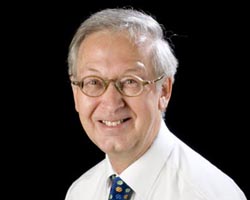
Professor Sir Colin Humphreys FRS
Department of Materials Science and Metallurgy, Cambridge University
Audio recording of the talk:
Visual slides for the talk (note: images obtained from the internet are included in good faith on the understanding that they are not subject to copyright restrictions and are freely available for non-commercial use):
Some relevant books:
The Miracles of Exodus
Colin Humphreys
Harper Collins 2003; ISBN 9780060582739
The Mystery of the Last Supper: Reconstructing the Final Days of Jesus
Colin Humphreys
Cambridge University Press 2011; ISBN 0-521-73200-X
Sir Colin Humphreys is a materials scientist specialising in semiconductors, electron microscopy, and aerospace materials. He was awarded the CBE in 2003 for services to research and communication in science, knighted in 2010, and elected a Fellow of the Royal Society in 2011. He has other awards for his scientific research.
Colin “studies the Bible when not pursuing his day-job as a materials scientist”, in his own words. He has a particular interest in understanding the miracles recorded in the Bible, and has published books on the subject. His investigations have included the miracles associated with the Exodus (the plagues in Egypt, crossing the Red Sea and River Jordan, and the nature and location of Mount Sinai), the star of Bethlehem, and the date of the first Good Friday and Easter.
With this combination of experience and interests, he is an ideal speaker to tackle the fifth in our series of talks, concerning the relationship of science and miracles.
For further information on our guest speaker, see https://www.msm.cam.ac.uk/people/humphreys
Friday 30 June 7:30 pm Knott Memorial Hall, Heddon on the Wall NE15 0DT
Science and Christian faith – age-old enemies or natural allies?
Professor Bill Clegg
School of Chemistry and University Chaplaincy, Newcastle University
Short video summary:
Audio recording of the talk:
Visual slides for the talk (note: images obtained from the internet are included in good faith on the understanding that they are not subject to copyright restrictions and are freely available for non-commercial use):
Some relevant books:
Slaying the Dragons: Destroying myths in the history of science and faith
Allan Chapman
Lion Hudson 2013; ISBN 978 0 7459 5583 4
Galileo goes to jail and other myths about science and religion
Ronald L. Numbers (editor)
Harvard University Press 2009; ISBN 978 0 674 03327 6
Unnatural enemies: an introduction to science and Christianity
Kirsten Birkett
Matthias Media 1997; ISBN 1 876326 01 8
Bill Clegg is a chemist specialising in the subject of X-ray crystallography, a method for determining the detailed structure of molecules as if they could be seen through an extremely powerful microscope. He formally retired in 2009 but continues with part-time research and the training of crystallographers. He has been involved in developing major international research facilities, and in writing textbooks and editing research journals.
Bill has been interested in the relationship between science and Christian faith for about 50 years. He has a Certificate in Theology, is an accredited Lay Preacher, and serves as the Baptist Chaplain at Newcastle University. He leads a local group of the national organisation Christians in Science and is the science co-director of the Big Questions – Any Answers? project.
With this combination of experience and interests, he is an ideal speaker to tackle the fourth in our series of talks, addressing the widely held and media-promoted view that there is a major conflict between science and religion.
For further information on our guest speaker, see
http://www.ncl.ac.uk/chemistry/staff/profile/billclegg.html
Thursday 15 June 7:30 pm Prudhoe Methodist Church NE42 6HP
Climate change – is it real and does it matter?
Dr David Golding CBE
Institute for Sustainability, Newcastle University
Audio recording of the talk:
Visual slides for the talk (note: images obtained from the internet are included in good faith on the understanding that they are not subject to copyright restrictions and are freely available for non-commercial use – they include slides taken from the Synthesis Report (2014) of the 5th Report of the Intergovernmental Panel on Climate Change):
Some reference articles and material provided by the speaker:
Response to BBC Met Office programme Aug ’15
Submission to Leveson Inquiry – Climate Change
Submission to public enquiry on Druridge Bay open-cast mining proposal
Some relevant video clips:
Kathy Jetnil-Kijiner, from the Marshall Islands, addressing UN Climate Summit (7 mins)
Jeremy Irons, and ‘For the love of’ (5 mins)
“What Has Aid Ever Done For Anyone? Apart from…”
David Golding is a marine biologist and a campaigner on behalf of the world’s poor. He retired as a member of staff of the School of Marine Science and Technology at Newcastle University, but continues as a Visiting Fellow and an Honorary Chaplain. He was a moving force in Make Poverty History North East, a founding member of the national board of the Jubilee Debt Campaign, and is currently Development Coordinator of North East Campaign Against Poverty (NECAP). In recognition of his tireless world poverty campaigning activities, he has been awarded an Honorary Doctorate by Newcastle University and was given a CBE in the 2008 New Years Honours.
Recognising that climate change disproportionately affects the poorest people of the world, who are least responsible for it in the first place, David campaigns vigorously in favour of public acceptance of the scientific evidence for human-induced climate change and for action to reduce and even reverse the current impacts of affluent lifestyle on the environment.
David is a member of Whitley Bay Baptist Church. With his scientific background and training, his years of world poverty campaigning, and his passionate Christian faith, he is an ideal speaker to tackle the topic in the third of our ‘Big Questions – Any Answers?’ series.
For further information on our guest speaker, see
http://www.ncl.ac.uk/sustainability/about/staff/profile/davidgolding.html
Wednesday 24 May 7:30 pm Wylam Methodist Church Centre NE41 8AA
Mine for ever? Our use of the earth’s resources

Professor David Manning
Institute for Sustainability and School of Civil Engineering and Geosciences, Newcastle University
Unfortunately an audio recording of this talk is not currently available. We hope that a recording will be provided later, as it is possible that the talk will be repeated to another audience.
Update: a talk on a related theme was given by David Manning at the 2019 CiS Northern Conference. See the event information above.
Visual slides for the talk (note: images obtained from the internet are included in good faith on the understanding that they are not subject to copyright restrictions and are freely available for non-commercial use):
David Manning is a geologist specialising in mineralogy and geochemistry, with applications in environmental science. He is currently Head of the School of Civil Engineering and Geosciences at Newcastle University and has previously been Director of the University’s Institute for Sustainability. He is interested in soil and plant responses to climate change, in carbon capture, in plant nutrient supply, and in carbon-neutral geothermal energy. His work has also been involved with mineral raw materials, energy and waste management.
Mining in Northumberland and the northeast of England in general has, of course, a rich history and heritage, particularly for coal but also other mineral resources such as lead. Even today there is some mining activity, with controversy over plans to expand opencast coal mining near the Northumberland coast. Quakers have long been involved in mining operations, and in the welfare of miners.
David is a Quaker with a life-long interest in responsible use of the earth’s resources including its mineral deposits such as fossil fuels. With his background in geology and environmental science and his Quaker faith, he is an ideal speaker to tackle the topic in the second of our ‘Big Questions – Any Answers?’ series.
For further information on our guest speaker, see
http://www.ncl.ac.uk/ceg/staff/profile/davidmanning.html
Wednesday 10 May 7:30 pm Queen Elizabeth High School Hexham NE46 3JB
Creation or Evolution – do we have to choose?
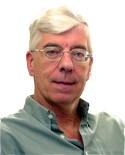
Professor Denis Alexander
Faraday Institute for Science and Religion, Cambridge
Audio recording of the talk:
Visual slides for the talk (note: images obtained from the internet are included in good faith on the understanding that they are not subject to copyright restrictions and are freely available for non-commercial use):
Reference:
Creation or Evolution: Do We Have to Choose? (2nd edition)
Denis Alexander
Monarch Books, Oxford, 2014 (first edition 2008)
ISBN: 978-0-85721-578-9 e-ISBN: 978-0-85721-579-6
Denis Alexander is an internationally recognized authority in genetics, the science of DNA and heredity. He has worked in cancer research and has contributed to the development of medical science departments in Universities around the world. He retired as a Professor in the world-leading biomedical Babraham Institute and as Director of the Faraday Institute for Science and Religion, both in Cambridge, but he continues to write, speak and broadcast on topics in the area of science and Christian faith. He has written numerous books, including one with the same title as this talk, originally in 2008 and updated in 2014.
As a leading geneticist and a committed Christian, Denis believes firmly that an acceptance of the Bible as the Word of God and of the scientific understanding of biological evolution is intellectually and morally consistent, and that the commonly held view that these positions are in conflict is wrong. With his background in biomedical science and Christian faith, he is an ideal speaker to tackle the topic in the first of our ‘Big Questions – Any Answers?’ series.
For further information on our guest speaker, see


